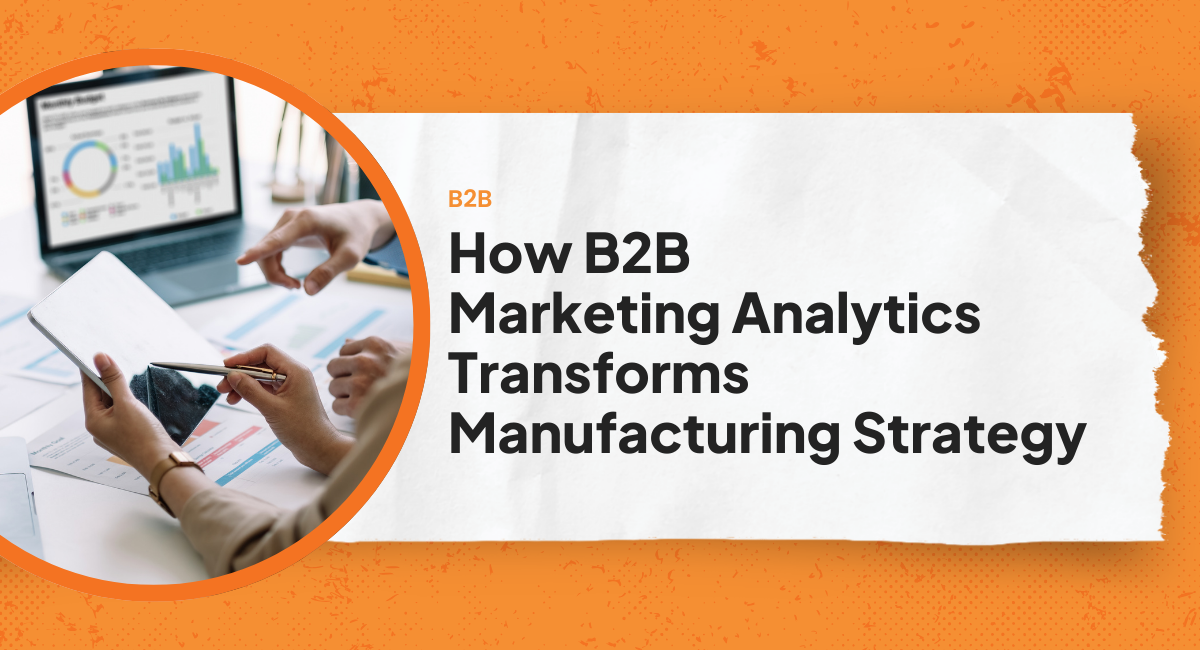When it comes to understanding how to qualify B2B leads, the excitement of receiving a new lead can often cloud our judgment. Sure, someone has expressed interest in your business, and that’s worth celebrating. But let’s face it, not all leads are ready to sign on the dotted line.
In the complex landscape of B2B marketing, leads come in all shapes and sizes. Some are ready to make a purchase right away, while others are still in the information-gathering stage. These high-intent prospects are what we call qualified leads, and knowing how to identify them is crucial for the success of any online marketing campaign.
So, how do you sift through the noise to find the gold? In this comprehensive guide, we’ll delve into proven business-to-business lead generation strategies that will help you categorize, nurture, and ultimately convert your prospects into qualified leads.
 Find Out What the Prospect Needs
Find Out What the Prospect Needs
The initial interaction is crucial. Whether it’s a phone call or an email, the first thing your sales team should do is identify what the prospect needs from your business. Is it information about a specific product, or are they looking to dive right in with a free trial?
This initial step sets the stage for how you’ll proceed with the prospect, making it a pivotal moment in your sales process.
The Power of Preliminary Questions
Your sales team should be prepared to ask a set of preliminary questions right off the bat. These questions serve as the foundation for understanding the prospect’s intent and how they fit into your sales funnel.
Consider asking:
- How did you find out about our business?
- Which of our products or services caught your interest?
- Are you in the information-gathering stage, or are you ready to make a purchase?
The Decision Point
Based on the answers to these questions, you’ll make a crucial decision: whether to proceed with this prospect or not. If the answers align well with your offerings and the prospect shows a high level of interest or intent, they’re a prime candidate for entering your sales funnel. On the flip side, if there’s a clear mismatch, it might be more efficient to focus your efforts elsewhere.
Make Sure Your Solution is What the Prospect Wants
It is essential to understand your prospect’s specific needs. This step is often the most intricate part of the lead generation process, requiring a nuanced approach from your sales and marketing teams. Let’s delve into why aligning your solutions with what the prospect genuinely wants is not just beneficial—it’s essential.
The Complexity of Choices
Imagine you run a medium-sized digital marketing company. A prospect reaches out, expressing the need to improve their online visibility. While this is a common request, the solutions can be manifold. You could suggest implementing a search engine optimization strategy or recommend investing in pay-per-click (PPC) ads. Both are viable options, but what if the prospect is looking for something specific—or perhaps neither of these?
The Art of Narrowing Down
Qualifying a lead isn’t just about identifying a need; it’s about narrowing down that need to offer the most effective solution. This could involve a detailed discussion about the pros and cons of both SEO and PPC, for instance. As the prospect gains a more profound understanding of these options, they’re more likely to make an informed decision—ideally, one that involves hiring your company.
The Win-Win Outcome
The objective is to align the prospect’s needs with your offerings so closely that the decision to proceed becomes a no-brainer. This helps you close the deal and ensures that the client is genuinely satisfied with the service, paving the way for long-term relationships and potential referrals.
Gauge the Prospect’s Budget
Knowing a prospect’s budget is like having a compass in a forest. Without this crucial information, your sales team could be navigating in the dark, wasting valuable time and resources on leads that will never convert. So, how do you gauge a prospect’s budget effectively?
Why Budget Matters
First, knowing a prospect’s budget is essential for crafting tailored proposals. It’s not just about whether they can afford your services; it’s about aligning what you offer with what they can realistically invest in. This creates a win-win situation: your sales team can focus on pitching the most suitable solutions, and the prospect feels understood and valued.
The Art of Asking
Discussing budget can be a sensitive topic, but it’s a necessary one. Train your sales team to approach this conversation tactfully. Open-ended questions like, “What kind of budget are you working with?” or “Do you have a financial range in mind for this project?” can yield more information than yes-or-no questions. The key is to make the prospect comfortable enough to share real numbers.
Budget as a Qualification Metric
Once you clearly understand the prospect’s budget, it becomes a powerful tool for lead qualification. If the budget aligns with your pricing, the lead moves further down the sales funnel. If not, it’s an immediate disqualification, saving your team from investing more time in a lead that won’t convert. This is a critical aspect of how to qualify B2B leads efficiently.
Refining Your Offerings
Budget information isn’t just a one-way street. It also provides valuable insights into market demands and pricing strategies. If you find that a significant number of prospects love your services but can’t afford them, it might be time to consider introducing a more budget-friendly package.
Discover the Prospect’s Level of Influence
Identifying who holds the decision-making power is only half the battle. When you’re figuring out how to qualify B2B leads, understanding the prospect’s level of influence within their organization can make or break your sales efforts. Let’s delve into why this is so crucial and how to navigate it effectively.
The Importance of Identifying Influence
In small businesses, you’re often talking directly to the decision-maker, be it the CEO or another executive. This simplifies the sales process, as you can gauge their level of interest right away. However, in larger organizations, the chain of command can be a maze. You might be talking to a director of marketing who loves your product but has to get approval from a board of senior officers. Knowing who you’re dealing with helps you tailor your sales approach.
Strategies for Different Business Sizes
Small Businesses: For small businesses, you’re likely talking to the decision-maker. In this case, proceed with your standard sales pitch. Highlight how your product or service can solve their immediate problems and add value to their operations.
Larger Companies: Here, the key is not to sell, but to educate. Provide insights into how your product or service can positively impact their bottom line. Offer data and case studies that the prospect can take to their senior officers, aiding them in making a compelling case for your solution.
Adapting to Your Target Audience
While these are general guidelines, remember that every industry and target audience is unique. Your sales tactics may need slight adjustments depending on the specific needs and structures of the businesses you’re targeting. However, the core principle remains the same: understanding the level of influence is vital in how to qualify B2B leads effectively.
Understand the Prospect’s Timeline
A critical component of how to qualify B2B leads is understanding a prospect’s timeline. It’s not just about whether a prospect is interested in your services; it’s about when they’re ready to pull the trigger. Let’s dive into why this aspect is so crucial and how your sales team can navigate it skillfully.
Why the Timeline Matters
Imagine this: A prospect is super excited about your product but mentions they won’t be ready to decide for another six months. While it’s great that they’re interested, your sales team needs to allocate their time and resources wisely. A prospect with a more immediate need will naturally take precedence. Understanding the timeline helps your sales team prioritize leads and tailor their follow-up strategies.
Asking the Right Questions
To get a clear picture of a prospect’s timeline, your sales team should ask pointed questions. Queries like, “When are you looking to implement this solution?” or “What’s driving your timeline?” can provide valuable insights. The answers will help your team gauge the urgency and decide on the next steps in the sales process.
Timeline as a Qualification Criterion
A prospect’s timeline is a strong indicator of how hot or cold a lead is. If they’re looking to make a purchase immediately, they’re a hot lead and should be fast-tracked through the sales funnel. On the other hand, if they’re still in the research phase with no clear timeline, they might be a colder lead requiring a different approach. This is a key factor in how to qualify B2B leads effectively.
Nurturing Leads with Different Timelines
Not all leads with extended timelines should be dismissed. Some may be valuable opportunities for the future. Your sales team can categorize these leads and place them into a nurturing program. Regular check-ins, educational content, and updates about your services can keep these leads engaged until they’re ready to make a purchase.
Ask Qualifying Questions
Being able to ask the right questions is like having a secret weapon. Not only does it help you move prospects through your sales funnel, but it also enables you to quickly assess whether a lead is worth your time and resources. Let’s dive into some essential qualifying questions that can help you pinpoint a prospect’s buyer persona and needs.
Why Ask Qualifying Questions?
Asking qualifying questions serves as a diagnostic tool for your sales team. It helps you understand the prospect’s pain points, budget constraints, and buying readiness. This information is invaluable for tailoring your sales pitch and determining which products or services would best meet the prospect’s needs.
Sample Qualifying Questions to Ask
Here are some key questions that can provide you with a 360-degree view of your prospect:
- What is your role within your company?
- Understanding their position will help you gauge their level of decision-making authority.
- What is your budget?
- This will help you offer solutions that are financially feasible for the prospect.
- Are you exploring your options or ready to buy soon?
- Knowing their buying timeline allows you to prioritize leads and allocate resources effectively.
- What problems are you trying to solve within your company?
- This gives you insight into their pain points, helping you tailor your solutions accordingly.
The answers to these questions are your roadmap to effective lead qualification. They help you identify which products or services to focus on and how to approach the sale. Remember, the goal is not just to sell but to solve problems. By asking the right questions, you’re well on your way to doing just that.
Hire a Business Marketing Partner
As you’ve navigated the complexities of how to qualify B2B leads, you’ve likely realized that it’s a multifaceted endeavor. It’s not just about asking the right questions or understanding a prospect’s budget; it’s about a holistic approach that evolves as your business grows. This is where a specialized digital marketing partner can make a world of difference.
The Value of Expertise
When you’re scaling your business, the challenges of lead qualification can multiply exponentially. Hiring a digital marketing company that specializes in this area is not just a good idea—it’s a strategic move. Such a partner can bring expertise, tools, and methodologies that can significantly boost your lead qualification process.
ROI-Focused Strategies
Investing in marketing is essential, but what’s even more crucial is ensuring that you get a high return on that investment. At David Taylor Digital, we’re committed to delivering ROI-focused strategies that invigorate your sales and convert more leads into qualified prospects. Our world-class internet marketing services are tailored to meet the unique needs of various businesses, ensuring that every dollar you spend is a step toward higher revenue.
We understand that lead qualification is a critical component of your sales cycle. That’s why we offer comprehensive solutions designed to improve your company’s revenue. From identifying high-value prospects to nurturing them through the sales funnel, we’ve got you covered.
Your Next Steps in Mastering How to Qualify B2B Leads
You’ve just unlocked the secrets of how to qualify B2B leads effectively. But knowing the strategy is just the first step; implementing it is where the real magic happens. That’s where a seasoned digital marketing partner comes into play.
At David Taylor Digital, we specialize in not just generating leads but ensuring they are the right fit for your business. We take the guesswork out of the equation, allowing you to focus on what you do best—running your business.
Why Wait? Take Action Now!
Don’t let potential high-quality leads slip through the cracks. Contact us today to speak with a member of our expert team. Let’s start turning those prospects into profitable relationships.
 Find Out What the Prospect Needs
Find Out What the Prospect Needs


